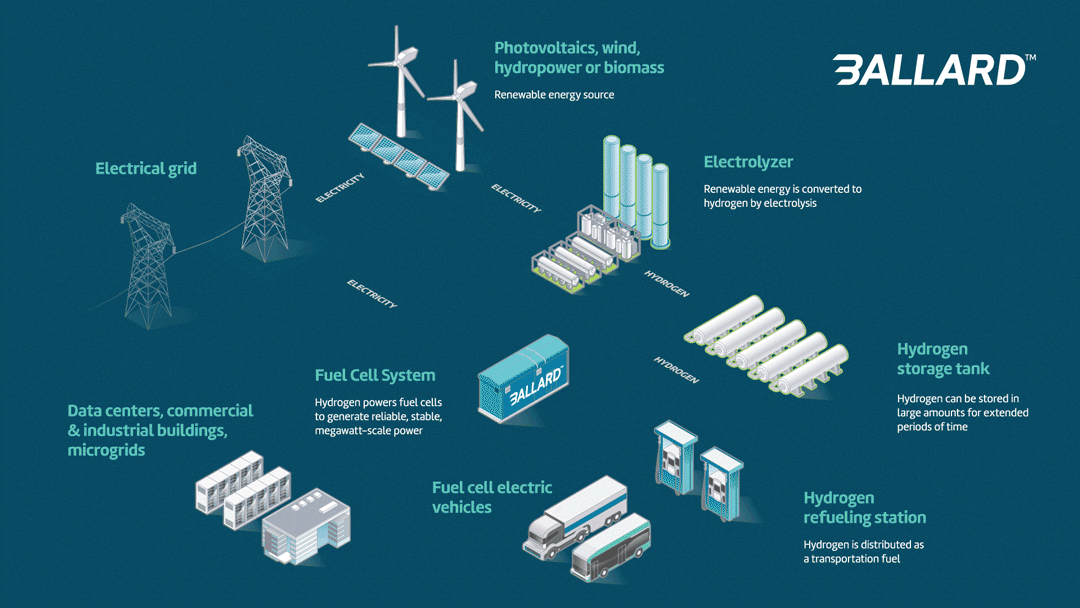
Ever since the European Climate Law passed in the courts two years ago with the goal of making Europe’s economy and society climate-neutral by 2050, there has been a lot of talk about how this target is going to be reached. The talk is starting to become action, as Europe has been steadily rolling out new zero-emission policies and initiatives.
Part of the law included intermediate targets. One of which is to reduce net greenhouse gas emissions by 55% by 2030 (compared to 1990 levels). Many of the new policies and initiatives are aimed to hit the 2030 target and provide the necessary to be climate-neutral by 2050.
This blog covers the emerging hydrogen policies in Europe and how they help meet the 2030 and 2050 emissions targets.
Europe-wide support for decarbonization continues
At the national level, fifteen European countries have adopted carbon neutral strategies. Another seven are expected to join their ranks in 2022. Support for hydrogen remains strong at the regional level too. Nearly 60 European regions have committed to building “hydrogen valleys” to develop local industry.
This is a pivotal moment in the zero-emission space. Many of the high-level ideas that were inspired by the 2020 Climate Law are now becoming reality with defined laws and well-structured support teams to see projects through to completion.
Hydrogen programs in place today
Since 2021, zero-emission programs have been expanding across Europe at every level.
The European commission launched the “Alternative Fuels Infrastructure Facility” in October 2021. The $1.5 billion fund supports building zero-emission infrastructure such as fast charging and hydrogen refueling stations. The fund brings European countries closer to reaching their goal of 1 million recharging stations by 2025 and 3.5 million by 2030.
Germany established funding to accelerate the transition to zero-emission buses. From September 2021 until 2024, the German government is committed to spending $1.25 billion on the development and installation of electric and hydrogen buses. The money can be used for a range of projects, from purchasing new buses to transitioning existing depots to support zero-emission vehicles. There are currently about 550 zero-emission buses on German roads. Already 1,500 new buses have been applied for.
The German government also pledged an additional $6.6 billion to incentivize commercial fleets to replace or upfit their diesel vehicles. The funding covers the purchase of N1 (similar to US class 2), N2 (similar to US class 3-6), and N3 (similar to US class 7-8) zero-emissions vehicles, as well as the conversion to zero-emission drives in N2 and N3 vehicles. The program also includes funding for the expansion of zero-emission infrastructure required to power the new vehicles.

Other countries such as Belgium, Denmark, France, and Spain are expected to follow Germany’s example in the coming years.
Even with this comprehensive support for zero-emission initiatives, this is still only a taste of things to come. New far-reaching laws such as the EU “fit-for-55 package” are under negotiations and will set clear incentives for decarbonization.
What’s to come
Europe is revising its climate, energy, and transport-related legislation to ensure its laws are sufficient to meet the 2030 and 2055 climate targets. The end result of the process is called ‘Fit for 55’, a set of updates and revisions of existing legislation, as well as proposals for new zero-emission initiatives that align with Europe’s climate goals.
- Part of the package includes 13 laws to speed up the decarbonization of transport, industry and energy. Some of the measure include:
- Deployment targets for hydrogen refuelling stations along the main European highways
- Targets for the production and sales of minimum volumes of hydrogen in industry and transport
- Tax rebates for hydrogen
- Setting of a carbon price in the shipping and road transport sectors
- Emission reduction targets for the shipping sector
In addition to this package, other European laws may further accelerate decarbonization. In the coming years there will be new (lower) CO2 emission standards for trucks, rules on weight and dimension of trucks, sustainable finance rules, and more.
The European commission has also proposed a new framework to decarbonize gas markets, promote hydrogen, and guarantee energy security for all Europeans. A primary goal of the proposal is to establish a market for hydrogen and nurture an environment where the investment and development of hydrogen infrastructure can thrive.
These various laws and initiatives are expected to come into place sometime during 2024 and 2025—in time to meet the emissions target for 2030.
What does this mean for Ballard?
All hydrogen plans depict heavy-duty transport as a sector that is difficult to decarbonize. Doing so requires policy intervention in order to spark change. The industry should expect regulatory and ESG pressure to transition away from diesel vehicles. The good news is they should also expect funding to help them do so.
Fuel cell electric vehicles are perfectly suited to decarbonize heavy-duty mobility. Their long range capabilities combined with fast refueling and smaller footprint make them the ideal replacement to diesel trucks. Their benefits aren’t limited to road transport, either. They prove an effective alternative to diesel-powered waterborne and rail transport too.
This is where Ballard can help. We have unparalleled experience in fuel cell electric vehicles (FCEVs). In fact, our fuel cells power most hydrogen buses in Europe. We’re also making strides in marine and rail applications. Ballard is committed to accelerating the deployment of fuel cell technologies to help jurisdictions reach their climate targets.

We’ve invested in Europe in the following ways:
- Scaling up of our manufacturing facilities for of marine and stationary power systems in Denmark.
- Investing in Forsee Power in France to optimize battery/fuel cell integration.
- Joint development of a next generation of truck engine with MAHLE in Germany.
- Partnership with Quantron to develop fuel cell truck
- Investing in market development activities to generate demand and remove adoption barriers for fuel cell vehicles
- Supporting operations of nearly 200 buses and trucks with our local customer care team
- Supporting our partners’ programs to advance hydrogen economy development. This will enable a quick switch to zero-emission systems to meet new regulatory obligations
With our experience creating hydrogen infrastructure and developing fuel cells for heavy-duty mobility, combined with our heavy investment in the acceleration of hydrogen in European countries, Ballard is an essential part of Europe's hydrogen future.
Final thoughts
After the initial period of excitement regarding the European Climate Law, concrete steps are being taken to turn these plans into action. Funding is starting to flow into the hydrogen sector across Europe, be it for hydrogen production or fueling early technology deployment.
A comprehensive regulatory framework is being developed in Europe and will be ready within the next few years, driving mass-market deployment of FCEVs. Most hydrogen-related funding programs and policies revolve around hydrogen production, infrastructure, and use in industry and heavy-duty mobility—areas which align well with our focus at Ballard.
With a team of over 230 people based in Europe, we are ready at Ballard to support the deployment of heavy duty mobility and deliver fuel cell power for a sustainable planet.

The future of heavy duty zero-emission mobility has arrived
Read this brochure for an overview of the development and features of Ballard's FCmove™ products. No email required.